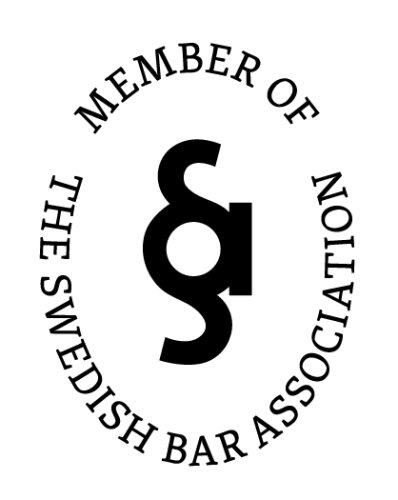Best Juvenile Law Lawyers in Karlskrona
Share your needs with us, get contacted by law firms.
Free. Takes 2 min.
List of the best lawyers in Karlskrona, Sweden
About Juvenile Law in Karlskrona, Sweden
Juvenile Law in Karlskrona, Sweden governs how minors - defined as individuals under the age of 18 - are treated within the legal system. The law aims to balance the need for accountability with a strong emphasis on rehabilitation and the best interests of the child. This area of law typically covers criminal proceedings involving minors, child protection services, and issues relating to family law such as custody and care. Karlskrona, being part of Blekinge County, follows Swedish national laws with specific local procedures applied by the Karlskrona District Court and social services agencies.
Why You May Need a Lawyer
Navigating Juvenile Law can be complex, and having professional legal assistance is often crucial. You may require a lawyer if:
- Your child has been accused or suspected of committing a crime.
- Social services are assessing your family due to concerns about a child’s welfare.
- You are involved in a dispute regarding custody, visitation rights, or guardianship.
- Authorities are considering placing a child in foster care or a treatment facility.
- Your teen faces disciplinary proceedings at school that could have legal repercussions.
- You need to understand your rights and responsibilities as a parent or guardian under Swedish law.
Legal counsel can help ensure your rights - and those of the child - are protected, and all procedures are followed according to applicable laws.
Local Laws Overview
Juvenile Law in Karlskrona follows the frameworks established by Swedish legislation, including:
- SOSFS (The Social Services Act): Ensures all children have the right to a safe and secure upbringing. It regulates when and how social services step in to protect minors.
- LVU (The Care of Young Persons - Special Provisions Act): Allows authorities to take protective measures, including compulsory care, if a child is at risk due to their home environment or their own behavior.
- Swedish Penal Code: Sets the minimum age of criminal responsibility at 15, with special measures for handling suspects under 21. Children under 15 cannot be held criminally responsible but may still be subject to social interventions.
- Parental Code: Regulates custody, guardianship, and parental responsibilities with the child's best interests as the guiding principle.
In Karlskrona, the local social welfare board and specialized juvenile police officers work closely with the courts to ensure cases involving minors are handled with sensitivity and in accordance with national policies.
Frequently Asked Questions
What is the age of criminal responsibility in Sweden?
In Sweden, a person must be at least 15 years old to be held criminally responsible for a crime. Children under 15 may not be prosecuted but can be subject to social services interventions.
What happens if my child is suspected of a crime in Karlskrona?
Police and social services will investigate, and social officers will work to ensure that the child’s rights are protected. If prosecution is necessary, there are specific juvenile courts and procedures aimed at rehabilitation.
Can my child be taken into compulsory care?
Yes, if there is a serious risk to the child's well-being, authorities can apply for compulsory care under the LVU. A court decision is required, and you are entitled to legal counsel during the process.
What legal rights do parents have during investigations?
Parents have the right to be informed, to participate in meetings, and to receive legal assistance. In cases involving compulsory care, representation by an attorney is strongly advised.
How is custody determined in cases of parental separation?
Custody arrangements are determined based on the best interests of the child. Courts encourage joint custody when possible, but will make different arrangements if necessary for the child's welfare.
Does my child need a lawyer if they are questioned by police?
Yes, if a minor is questioned by police, they have the right to legal representation, and a parent or guardian should usually be present.
Can a minor refuse to participate in an investigation?
Minors are generally expected to cooperate with authorities, but their age and maturity are taken into account. Children under 15 cannot be forced to give evidence against themselves in criminal cases.
Who decides if a child is placed in foster care?
Social services can initially place a child in care in emergency situations, but longer placements require approval by a court under the LVU.
What support is available for families in these situations?
Social services in Karlskrona offer counseling, mediation, and support programs. There are also legal aid services to help families navigate the process.
How quickly are cases involving juveniles handled?
Cases involving minors are prioritized to avoid long-term disruption to the child’s life. The law requires that such proceedings be handled as quickly as possible.
Additional Resources
If you need more information or assistance regarding Juvenile Law in Karlskrona, the following resources may be helpful:
- Karlskrona Social Services Office - Provides support, assessment, and interventions for children and families.
- Karlskrona District Court - Handles legal proceedings regarding juvenile matters including custody and compulsory care.
- The Swedish National Board of Health and Welfare (Socialstyrelsen) - Offers national guidelines and information about child protection.
- The Swedish Child and School Student Representative (BEO) - Works for the rights of children and students in school environments.
- Legal Aid Office (Rättshjälpsmyndigheten) - Can provide information about qualifying for government-sponsored legal assistance.
- Barndialogen - A local contact point offering advice for children and families in Blekinge County.
Next Steps
If you are facing a juvenile law issue in Karlskrona, consider taking the following steps:
- Contact the local social services office to understand immediate measures and available support.
- Consult a specialized juvenile law attorney. Many initial consultations are free or available at a reduced cost.
- Gather all relevant documents and information, such as court papers, correspondence from social services, and identification documents.
- If needed, apply for legal aid to support your legal costs.
- Act quickly - timelines in juvenile cases are often short to reduce stress and disruption to the child’s life.
- Remain open and transparent with your legal counsel to ensure the best possible outcome for your child and family.
Remember, legal processes involving minors are designed to prioritize their well-being and development. Seeking timely legal advice is the most effective way to protect your family’s interests and ensure your rights are respected.
Lawzana helps you find the best lawyers and law firms in Karlskrona through a curated and pre-screened list of qualified legal professionals. Our platform offers rankings and detailed profiles of attorneys and law firms, allowing you to compare based on practice areas, including Juvenile Law, experience, and client feedback.
Each profile includes a description of the firm's areas of practice, client reviews, team members and partners, year of establishment, spoken languages, office locations, contact information, social media presence, and any published articles or resources. Most firms on our platform speak English and are experienced in both local and international legal matters.
Get a quote from top-rated law firms in Karlskrona, Sweden — quickly, securely, and without unnecessary hassle.
Disclaimer:
The information provided on this page is for general informational purposes only and does not constitute legal advice. While we strive to ensure the accuracy and relevance of the content, legal information may change over time, and interpretations of the law can vary. You should always consult with a qualified legal professional for advice specific to your situation.
We disclaim all liability for actions taken or not taken based on the content of this page. If you believe any information is incorrect or outdated, please contact us, and we will review and update it where appropriate.











